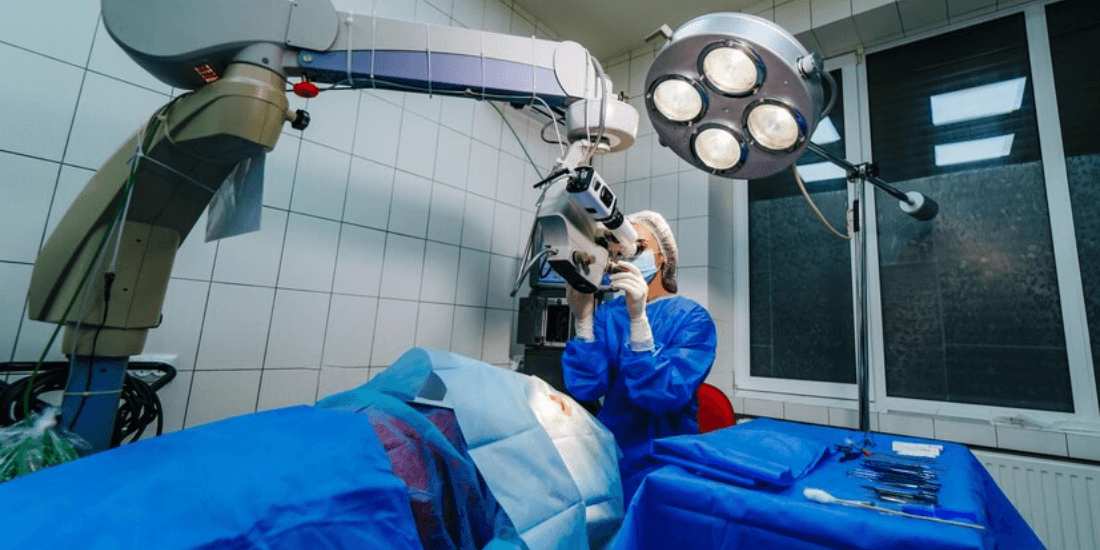Laparoscopy for Diagnosis: How It Works and What to Expect
The world of ART is ever evolving and this is where medical professionals keep on adding a newer and more effective treatment option to enhance the success of the existing alternatives. That said, a least invasive surgical method, laparoscopy has transformed the way different internal diseases and complications are diagnosed and treated by doctors. While many still don’t know about this procedure, it is proving its prowess across almost every part of the world.
Also, it eliminates the need for significant incisions so enabling a thorough view within the abdomen and pelvis. Particularly in sectors like gynecology, IVF and general surgery, this alternative is growingly common in a city like Varanasi. Moreover, we will discuss Laparoscopic surgery in Varanasi in this post along with its uses, pre and post-operative expectations for the patients. Still, as you proceed further in this regards, it’s very important to first take a grasp of this procedure in detail.
What do we understand with Laparoscopy?
Laparoscopy is generally used to examine various internal organs within the pelvic region of the human body, especially in women. Also, laparoscopic surgery in Varanasi entails making tiny incisions through which various surgical tools and a laparoscope—a narrow tube with a light and camera at the tip are passed through. The camera sends pictures to a monitor, therefore providing the surgeon with a clear, magnified view of the internal organs. At the same time, faster recovery times, less discomfort, and less risk of infection follow from this less intrusive approach than from conventional open surgery.
On the other side, skilled laparoscopic surgeons with backgrounds in many medical disciplines carry out hystero laparoscopy treatment in Varanasi. Usually in a state-of- the-art IVF hospital in Varanasi or specialized surgical centers, these doctors employ the operation for both diagnostic and therapeutic needs.
That said, you must always verify and check the credibility of the center and the surgeon in before proceeding ahead. As far as a city like Varanasi is concerned, you can find many laparoscopic surgeon in Varanasi that offer world class treatment in this regards.
What are the key purposes of Laparoscopic surgery in Varanasi?
The prospect of laparoscopy is used for many purposes within the modern day medical science. Also, when non-invasive techniques fall short in providing sufficient information, laparoscopy at IVF hospital in Varanasi is often utilised to diagnose disorders. Moreover, conditions possibly needing a diagnostic laparoscopy include:
- Sudden stomach aches
- Infertility
- Already present gynaecological disorders including pelvic inflammatory illness or endometriosis
- Masses or tumours within the stomach
- Fluid in the abdomen cavity
- Evaluation of certain cancers
In gynaecology especially, hystero laparoscopy treatment in Varanasi plays a key role. Especially helpful in the diagnosis and treatment of infertility and other reproductive system problems, this combined procedure of hysteroscopy and laparoscopy enables surgeons to inspect both the inside of the uterus and the abdominal organs.
Getting ready for laparoscopic surgery
This would involve usually meeting with a laparoscopic surgeon in Varanasi to discuss the surgery, learn the risks, and get advice on how to prepare. Once done, patients then proceed with the laparoscopic surgery in Varanasi. Preparation could call for:
- Usually to lower their risk of complications, patients must fast for eight to twelve hours before the surgery.
- Patients might have to discontinue or change some medicines, including blood thinners, to avoid surgical problems.
- Blood tests, ultrasounds, or other imaging tests could be done to help the surgeon better grasp the state of the patient.
How the Laparoscopic Surgery works?
The laparoscopy procedure at an IVF hospital in Varanasi works just lie anywhere else in the world. Usually under general anesthesia, the operation is carried out on the day of surgery; so, the patient is asleep and has no pain during it. The process might go generally as follows:
- Anaesthesia is given
- The surgeon does tiny incisions within the abdomen
- To provide room for the surgeon to operate, the carbon dioxide gas is inflated within the abdomen
- Other tools like the laparoscope are passed via the incisions.
- Looking for signs of certain issues or sickness, the surgeon investigates the internal organs. For additional study, tissue samples—biopsies—may be obtained.
- The instruments are taken out; the gas is let off; and the incisions are closed using surgical tape or stitches.
- Depending on what has to be looked at or treated, the whole process often takes thirty to ninety minutes.
This is a standard procedure and may change depending on the certain case. If you are a patient, do visit the clinic and gain as much information as you can in prior. The procedure may vary depending on the availability of the facilities and equipment required for the surgery.
What about the recovery procedure within laparoscopy?
The person and the details of the surgery will affect the recovery period. Once the effects of anaesthesia fade, most patients can go home that same day. Still, one often feels some pain, including:
- Some pain within the incision region
- Bloating or stomach aches
- Shoulder discomfort brought on by carbon dioxide gas
- Anaesthesia causes nausea
Most of these symptoms are transient, thus painkillers help to control them. Moreover, the patient is usually advised to rest for a few days before progressively resuming to normal activities. Though this varies from one patient to another, full recovery usually happens in one week.
Following laparoscopic surgery in Varanasi is quite vital. Patients will visit for follow-up to track their healing and go over any surgical results. Should any anomalies be discovered, this could entail going over biopsy findings or organizing additional treatment.
Final Words
At the end we can say that this latest minimally invasive laparoscopic surgery in Varanasi provides a precise and efficient means of identifying different health complications. That said, patients should anticipate a thorough but somewhat speedy surgery accompanied by a limited recovery time. Also, more patients will profit from this efficient diagnostic and therapeutic treatment as the skills of laparoscopic surgeon in Varanasi keep developing, therefore guaranteeing better outcomes with less pain and downtime than with conventional surgical techniques.

